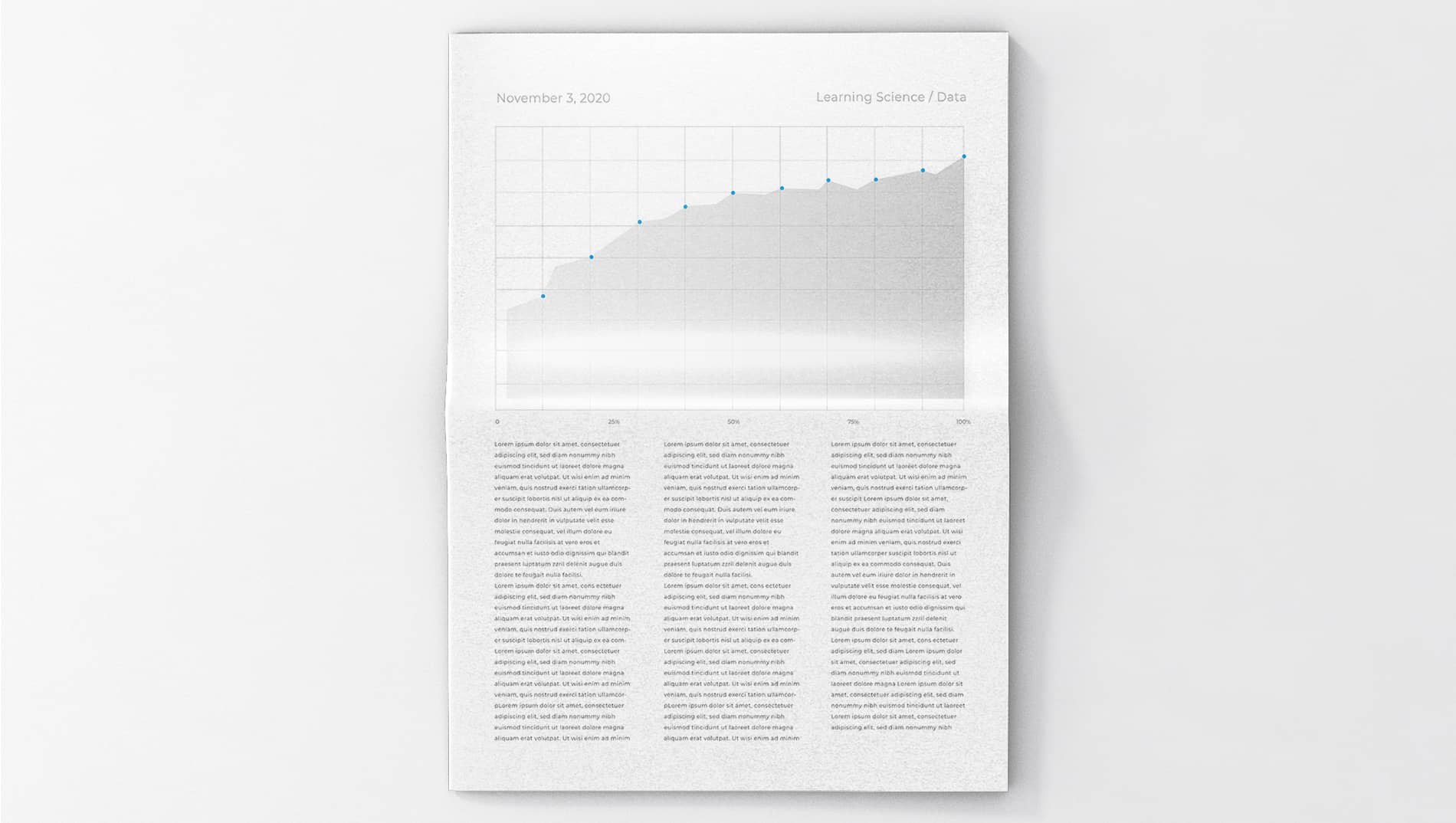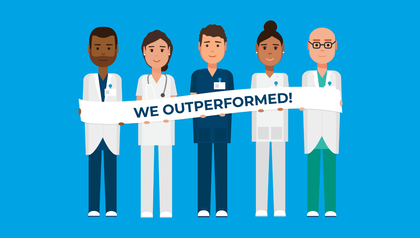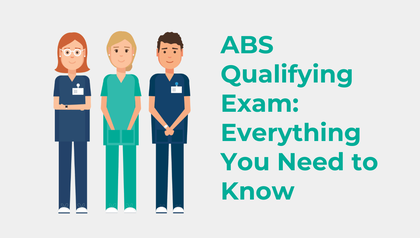How to Study for the ABSITE and Prepare for Test Day
Every year the American Board of Surgery (ABS) offers the American Board of Surgery In-Training Exam (ABSITE). The ABSITE assesses a surgical resident’s knowledge and helps them gauge how they are progressing through their training. Preparing for this comprehensive exam requires dedication, effective strategies, and a systematic approach. Let’s get into how to study for the ABSITE with some study tips, advice to create your study plan, and logistics to prepare for test day.
1. Understand the Exam Content
Before diving into your study plan, it’s essential to familiarize yourself with the ABSITE content. The exam consists of two 2.5-hour sessions. The questions on the ABSITE are all based on the SCORE Curriculum Outline, which is the list of topics that are covered in a five-year surgical residency. The primary subject areas of the ABSITE are Clinical Management, which makes up approximately 80% of the test, and Applied Sciences, which makes up the other approximate 20%.
The ABSITE is known for its challenging nature, with a significant emphasis on clinical reasoning and surgical decision-making. Therefore, understanding the format is crucial as it will help you tailor your study approach accordingly.
2. You Need a Question Bank
A quality question bank is key to your success. Practice questions are powerful tools that help you gauge your knowledge gaps and hone in on your study needs. When taking practice questions there are two approaches, and you should use both. For quick studying, use “tutor mode” to get immediate feedback on the question. For gaining testing endurance, use the timed mode and slowly increase the number of questions you are doing at each session. On timed exams, be sure to do randomized questions to get a feel for what the exam will actually be like. (We have more advice on how to use Q-banks for anyone wanting to maximize their studying tools.)
Don’t just skim over incorrect answers. Analyze your mistakes to understand why you got a question wrong. It’s also important to read the rationales for questions you answered correctly. This will help you identify knowledge gaps and improve your problem-solving skills.
TrueLearn’s ABSITE question bank has over 1,000 practice questions, and you should complete them all before taking the exam. And every TrueLearn question comes with an in-depth rationale. In fact, a study found that completing TrueLearn’s entire ABSITE question bank increased residents’ overall percentile on the exam by 20%.
3. Get a Good Review Book
Popular ABSITE study resources include Fiser’s The ABSITE Review and Surgical Recall. As you progress through your practice questions, use your review book to touch up on knowledge gaps that become evident.
4. Case-Based Learning
Try to apply your knowledge to clinical scenarios. When studying a certain topic, think back on cases you’ve had in the past. Discuss cases with peers or mentors to gain a deeper understanding of clinical decision-making.
5. Create Study Aids
Think about how you study best and make study aids to fit into your learning style. Study aids include things like flashcards, notes on complex topics, mnemonic devices, concept maps, etc. These resources can help you interconnect topics and see the bigger picture of highly complex information.
6. Seek Guidance
Seek guidance from mentors, senior residents, or faculty members. They can offer valuable information, from recommending study resources to providing guidance on specific topics. Also consider joining study groups to engage in collaborative learning.
How Long to Study for the ABSITE
Successful ABSITE preparation begins with adequate time management. We suggest anywhere between 3–6 months of dedicated study time. The amount of time varies from person to person depending on prior knowledge, clinical experience, and residency schedule.
Creating a Study Plan
Creating a well-structured study plan is essential. First, assess your weaknesses. Use practice questions to assess your weak areas. Use the information to help you allocate more time to topics you may be struggling with.
Establish clear, achievable goals for your study schedule. This could include completing a certain number of practice questions each day or covering specific topics within a given timeframe. Add in time to periodically review previously studied material to reinforce your knowledge and memory.
After study sessions or practice tests, review your performance to identify your weaknesses and adjust your study schedule/goals accordingly. Incorporate short breaks into your study schedule to recharge.
And finally, reward yourself after reaching specific milestones to stay motivated. It’s too easy to focus on what you don’t know. Make sure to celebrate what you do.
The ABSITE Content Outline shares which patient care and medical knowledge topics are covered and how heavily each topic is tested. As such, you should take a weighted approach to your studies.
Knowing that the ABSITE applies the following percentage weights (with some variation from year to year), it is best to study accordingly:
- Patient Care – 72%
- Medical Knowledge – 24%
- Other (Radiology, Outcomes, and Ethics) – 4%
Example ABSITE Study Plan
The above categories are further broken down into topics with their own percentage weights, as indicated in the ABSITE Content Outline. Thus, if your ABSITE is three months away, you could consider the following study schedule:
- Start time: Early October is best, no later than the middle of November.
- Stop time: Rest the day before the ABSITE (which is typically in late January or early February).
- Practice questions: As many as possible, depending on learning style. Some trainees will complete an entire question bank or two prior to the exam.
- How to take the questions: Tutor mode is useful for formative practice, since the explanations are provided immediately after answering the questions. However, it is helpful to mix in timed mode, especially as you get closer to your exam date, to better simulate the actual test-taking experience.
It is best to mix questions from different categories, as this allows you to test yourself on a diverse range of topics in each sitting. However, if you have a particular area of weakness, taking repeated, focused questions on that topic can help improve your understanding. Weak areas will likely need to be supplemented with additional readings.
General note: Try to review surgery materials daily. According to a study by Kim and others, reading habits are an essential predictor of ABSITE scores. In addition to practice questions, nontraditional materials such as YouTube tutorials, as well as traditional resources like textbooks, review books such as The ABSITE Review by Fiser, and for more advanced residents, SESAP, are all great study tools.
What Is a Good ABSITE score?
The ABSITE is scored as a percentile rank. A score of 50% or higher (meaning you scored better than 50% of test takers) will give you a competitive edge when applying to fellowships.
2024 ABSITE Dates
The exam dates for 2024 are January 26–30, 2024. The fee for the exam is $90.
Preparing for the ABSITE is a challenging endeavor. By understanding the exam format, creating a structured study plan, and actively engaging with the material, you can significantly enhance your chances of success. Remember that ABSITE preparation is a marathon, not a sprint, so stay committed and focused on your goals. With the right approach and dedication, you can excel in this important milestone on your journey to becoming a skilled surgeon. Good luck!


